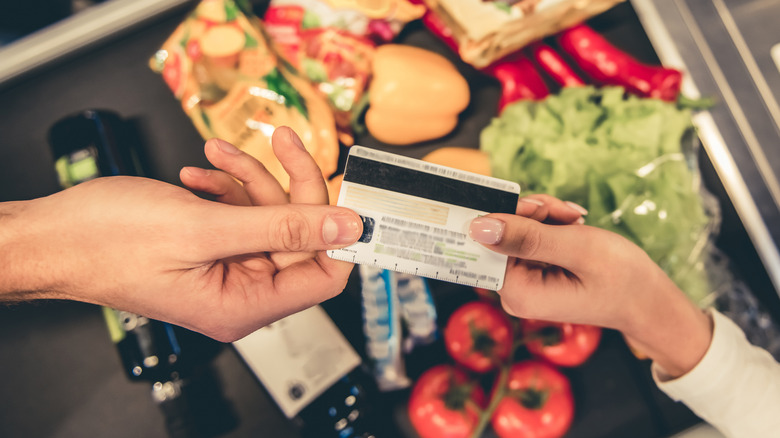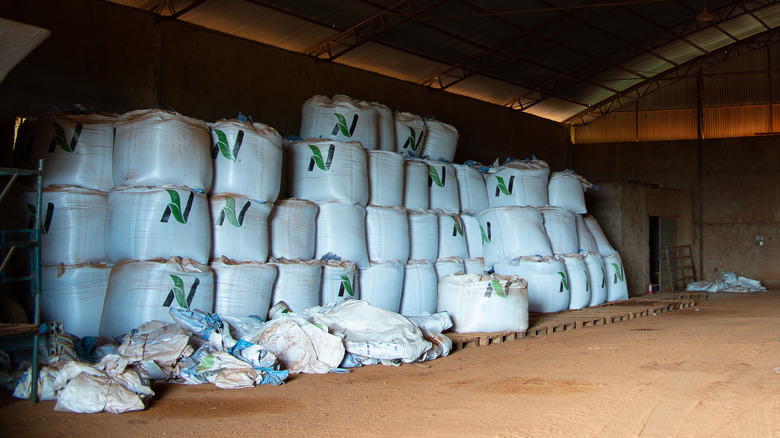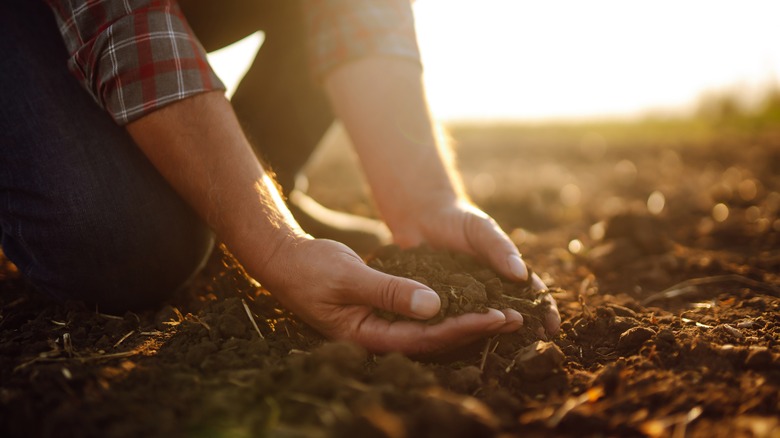The Surprising Reason The War In Ukraine Could Cause Grocery Prices To Rise
It would be tempting to believe the ongoing war between Russia and Ukraine won't have more than a small impact on most people's day-to-day lives, but that thought couldn't be further from the truth. Gas prices are on the rise, as are wheat prices, which are sure to have an impact on the cost of breads and cereals.
But there is one more item whose supply shortage and price hike is likely to be felt just as deeply and across almost all foods we consume on a day to day basis — and that is fertilizer. The Fertilizer Institute says Russia is responsible for 21% of potash, 23% of ammonia, and 14% of urea globally, making it the "second largest producer" of these fertilizers worldwide. All three are essential to plant growth because they add nitrogen and potassium to soil.
The agriculture sector is being hit by a fertilizer shortage
Countries with agriculture-based economies like Brazil are expected to be hardest hit by the fertilizer crunch. Unfortunately, because Brazil is also the world's biggest supplier of coffee, soybeans, and sugar, per The Wall Street Journal, any fertilizer problems it might encounter will in turn cause the prices of the commodities the country grows to spike.
Svein Tore Holsether, who heads Norwegian fertilizer company Yara International, says he buys most of his raw material from Russia, and admits that hostilities have made sourcing even more challenging than it already is. Holsether says: "We were already in a difficult situation before the war ... and now it's additional disruption to the supply chains and we're getting close to the most important part of this season for the Northern hemisphere, where a lot of fertilizer needs to move on and that will quite likely be impacted," per BBC.
Holsether added: "Half the world's population gets food as a result of fertilizers ... and if that's removed from the field for some crops, [the yield] will drop by 50%. For me, it's not whether we are moving into a global food crisis — it's how large the crisis will be."
To give an example of how important fertilizer is to crop yields, the BBC reported in a separate article that Yara had donated 40,000 tons of fertilizer to small farms in East Africa, which saw their crop yields triple as a result.
Countries call for less dependency on Russia
The situation might look a bit ominous, but its not quite as dire as it could be ... at least, not yet. The Wall Street Journal says, at least where Brazil is concerned, fertilizer companies claim to have enough local stock to last another three months. And even though Russia is no longer in a position to ease the global fertilizer shortage, there is still Canada, which is the largest potash fertilizer producer in the world. Though prices are likely to rise, farmers should still be able to get their hands on the stuff.
If anything, the shortage is giving countries a chance to think about becoming more self-reliant. Brazil's government is looking to kick-start a national fertilizer plan — one that might push for more investment in potash and phosphorus mines. And for European suppliers like Holsether, it's about cutting reliance on Russia so the world's food supply chain is kept secure. He says, per the BBC: "On the one hand, we're trying to keep fertilizer flowing to the farmers to keep up the agricultural yields. At the same time ... there has to be a strong reaction. We condemn the Russian military invasion of Ukraine so this is a dilemma and one that frankly is very difficult."


